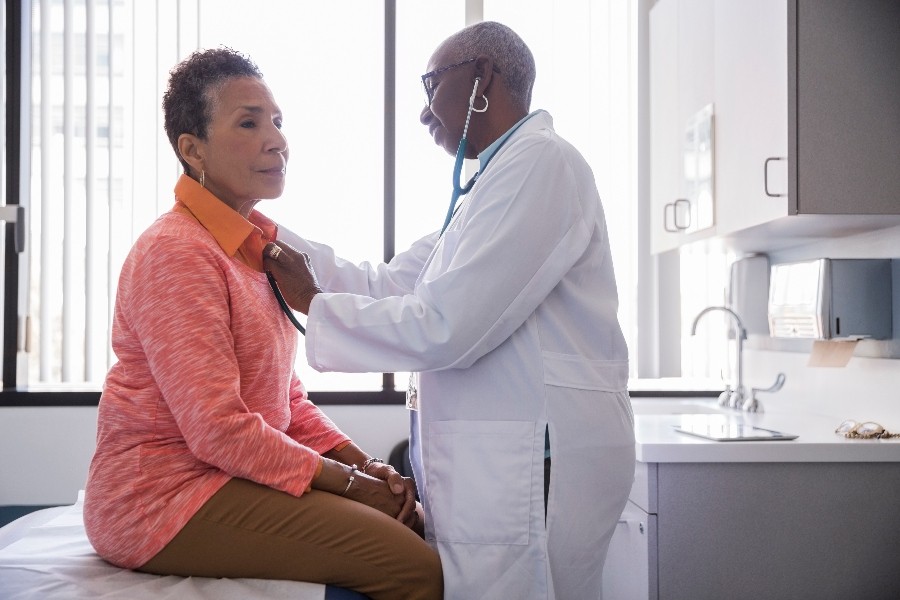This New Collaboration Aims to Improve Philly’s Health Inequities
Accelerate Health Equity brings together 11 organizations to combat racial and social disparities impacting local health outcomes.

Accelerate Health Equity is a collaboration among 11 Philly-area health organizations to improve health outcomes for city residents. / Photograph courtesy of Getty Images.
For the past 12 years, Philadelphia has consistently ranked last out of the state’s 67 counties when it comes to length and quality of life, as well as health factors like access to care, education and employment, community safety, housing, and food (in)security. Though population size plays a role, these social determinants of health — including maternal and infant mortality, heart health and treatment, cancer care, home ownership, and vaccine distribution — have greatly contributed to the racial and socioeconomic disparities that exist both within the city and in comparison to other Pennsylvania counties.
To help improve health outcomes for Philadelphia residents, a new initiative consisting of 11 local organizations is set on combating inequities and closing health gaps, especially ones resulting from systemic racism. Launched March 16th, Accelerate Health Equity brings together AmeriHealth Caritas, Children’s Hospital of Philadelphia (CHOP), the City of Philadelphia, Drexel University, Independence Blue Cross, Jefferson Health, Main Line Health, Penn Medicine, Philadelphia College of Osteopathic Medicine (PCOM), Temple Health, and Trinity Health Mid-Atlantic to create a healthier Philadelphia through measurable, positive changes.
How do they plan to do it exactly? To start, the collaboration is putting into motion five initial pilot programs, all of which are tied to specific factors impacting health outcomes. The programs include:
- “Housing Smart” from Temple Health, which focuses on housing subsidies and support services for people without housing,
- “Closing the Gap,” Jefferson Health’s partnership with Novartis Pharmaceuticals Corporation targeting social determinants that impact cardiovascular health outcomes in low-resource communities,
- Independence Blue Cross and AmeriHealth Caritas’s “Keystone Connection to Wellness” for maternal health outcomes, in conjunction with Project HOME,
- Penn Medicine’s “Penn Atherosclerotic Cardiovascular Disease (ASCVD) Risk Reduction Program,” which will help identify patients living in West and Southwest Philly who are at high risk for cardiovascular disease using targeted interventions to improve hypertension and lower cholesterol,
- and “Together For West Philadelphia,” a collaboration between Main Line Health and Trinity Mid-Atlantic to maximize health equity in West Philly.
These pilot programs will be consistently evaluated and tracked, and progress will be publicly available via a digital health equity dashboard. The data will also be used to scale successful programs in order to expand reach in other parts of the region.
Erica Dixon, director of Accelerate Health Equity and project director at Penn Medicine, says that in the summer of 2020, healthcare systems and health-focused organizations across the region came together in conversations about the COVID-19 pandemic, the murder of George Floyd, the Black Lives Matter demonstrations, and the impact all were having on Philadelphians. “The idea of collaborating, breaking down silos, working together — that was a concurrent evolution between many forces, including 13 Southeastern PA health systems declaring that racism is a public health crisis, plus the Blue Cross Blue Shield Association’s pledge to make meaningful change and their National Health Equity Strategy,” she says.
From there, Accelerate Health Equity began to take shape, with stakeholders forming a steering committee in early 2021 and finalizing the initiative a year later.
Dixon says the overarching goal of the initiative is to advance the health of area residents and break down the forces driving disparities predominantly impacting Black and brown Philadelphians. “Our aims are to improve health equity, address racism in health care and social determinants of health, and have a sustainable impact in Philly — and doing that by working together across all these organizations through successful, scalable pilot programs.” In doing so, initiative collaborators agree there’s an opportunity to greatly improve Philly’s health and healthcare landscape — and have a lasting impact.

Philadelphia magazine is one of more than 20 news organizations producing Broke in Philly, a collaborative reporting project on solutions to poverty and economic mobility in the city. Read all our reporting here.


